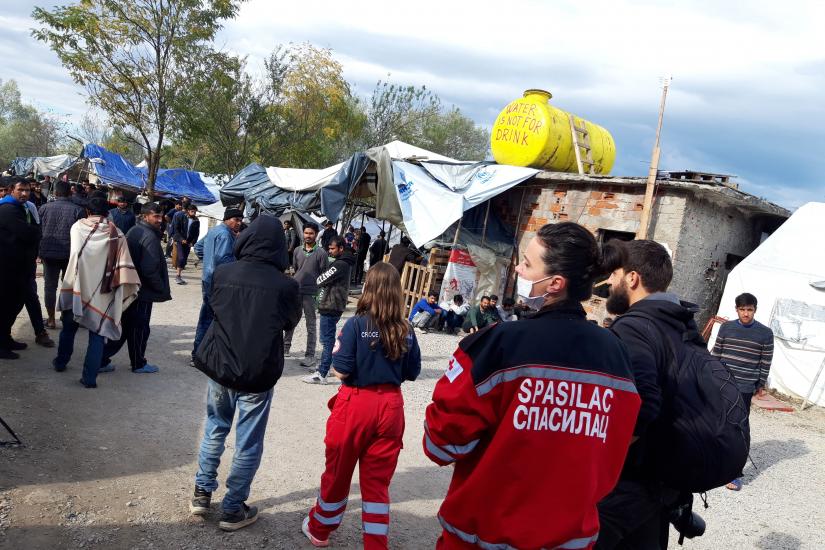
Background:
Since late 2017, Bosnia-Herzegovina has been on one of the main trajectories of the Balkan Route of migration to the western EU states. Because of its geography, the Una-Sana Canton in Northwest Bosnia has seen the most people cluster on its territory, especially in its capital city of Bihać and other towns along the western border with Croatia and therefore the EU. In the beginning, local residents, with memories of their own recent war experiences and feelings of religious or humanitarian obligations, were quick to bring people food and clothing, to take them into their homes, and to offer other sorts of help. Many have continued to do this work, filling the huge gaps left by the facilities that are provided. Local government officials, in turn, have provided some shelter but also more recently attempted to put a stop to the influx of people, setting up the infamous semi-official tent camp at Vučjak, not providing adequate conditions there but nevertheless using racial profiling to forcibly relocate migrants to Vučjak against their will. Officials are being pressured by a growing local movement against migrants that organizes public protests and spreads fear on social media. Complicating the picture is the cumbersome political structure of Bosnia-Herzegovina, the role of international humanitarian organizations and loosely organized foreign volunteers, and media reports that condemn Bosnia-Herzegovina without acknowledging the root causes of either migration or roadblocks to asylum or work migration put up by the EU’s often violent border policies.
Please join us for a report and informal discussion on the situation led by Elissa Helms, Associate Professor in the Department of Gender Studies who is spending the current year in Bihać doing ethnographic research on these dynamics.